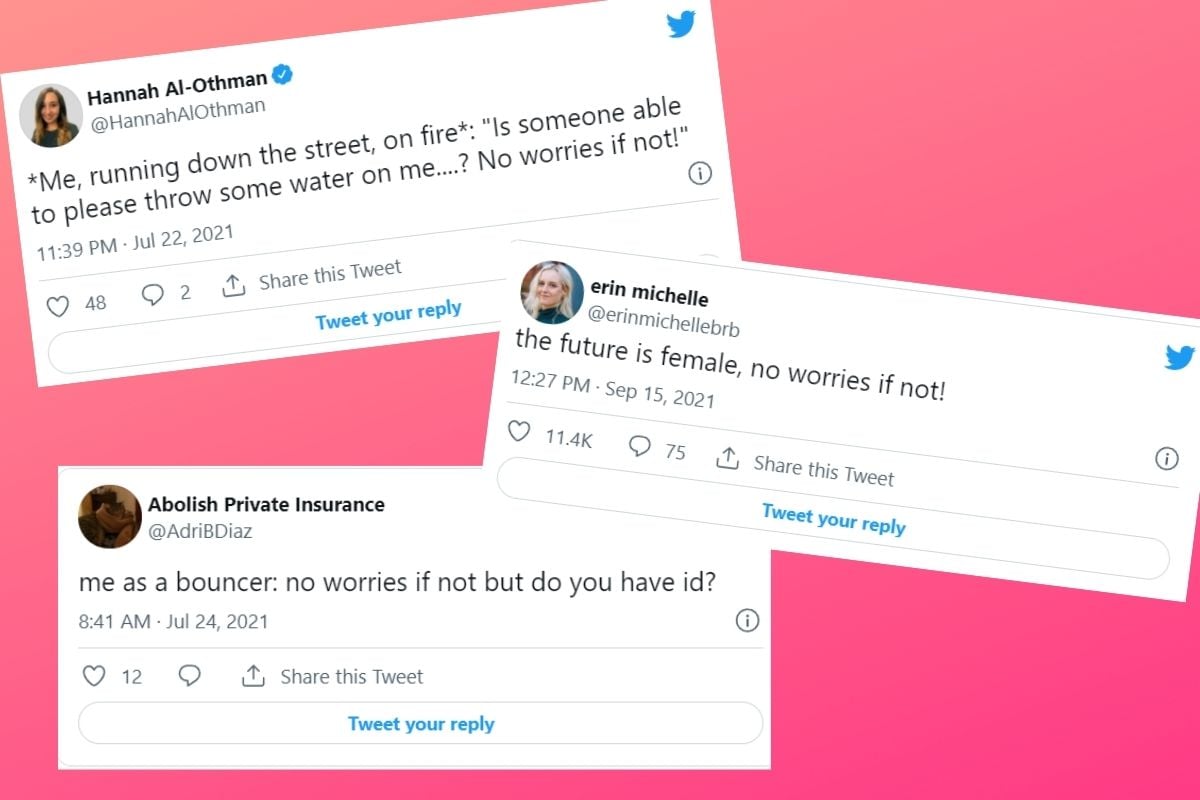
“No worries if not!!!!" If these four words are part of your day-to-day vocabulary, please sit. We need to talk.
Because while it may seem like a harmless buffer to make sure no one thinks you're being 'demanding' or 'bossy' (god forbid!), these four simple words can actually stop us from properly expressing what we need.
And it says way more about your personality than you might think.
Watch: How do you tell the difference between feeling sad and being clinically depressed? We asked an expert to give us the lowdown. Post continues below.
In the same vein as using terms like "just checking", "sorry to bother you" and "I know you're busy...", the whole "no worries if not!" thing is a toxic trait of a chronic people pleaser. That is - those who fear that communicating their emotional or practical needs will be a burden to others.
*Me, running down the street, on fire*: "Is someone able to please throw some water on me....? No worries if not!"
— Hannah Al-Othman (@HannahAlOthman) July 22, 2021

